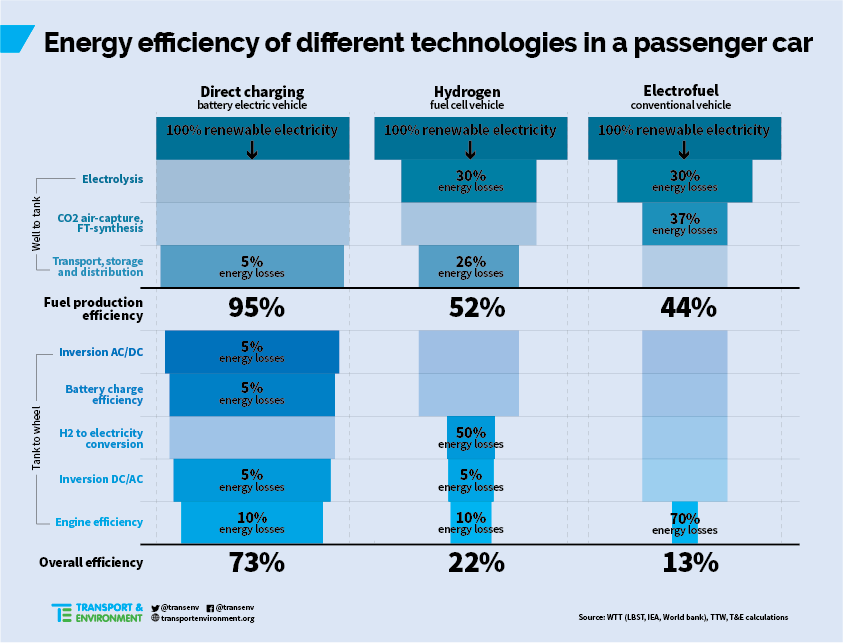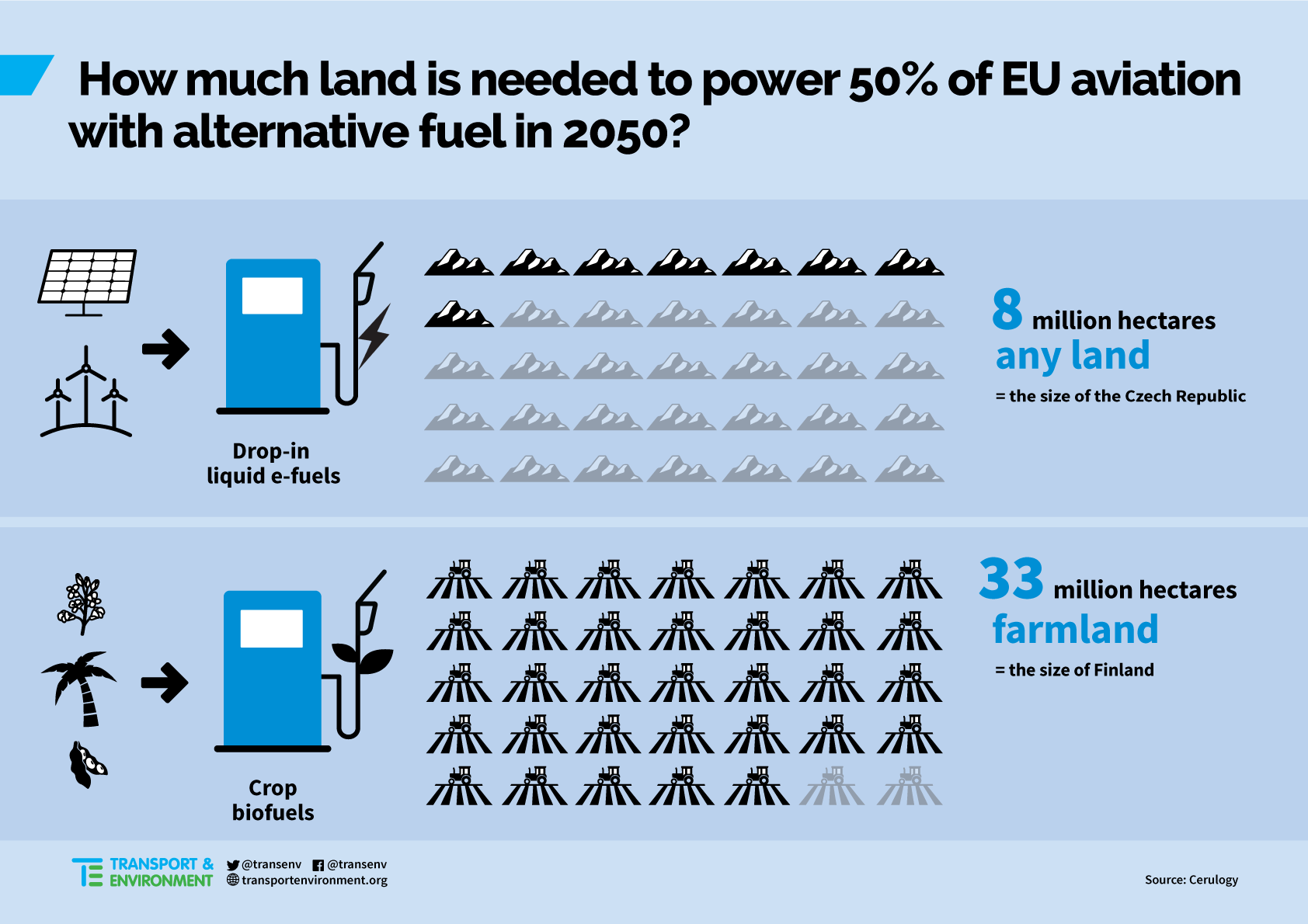
The study, conducted by consultancy Cerulogy for NGO Transport & Environment (T&E), concludes that e-fuels could supply a limited amount of aviation’s growing energy needs but only if the electricity comes from new renewable sources with strict sustainability criteria. T&E said the EU must ensure only e-fuels produced from renewables, such as wind and solar, can be eligible under the advanced fuels target and that it should adopt measures to avoid double counting of renewable electricity under the Renewable Energy Directive.
Electrofuels, also known as e-fuels or power to liquid, are electricity-based liquid fuels which can be used in internal combustion engines. But to power Europe’s road transport fleet with liquid e-fuels, the EU would have to generate one and a half times more than its current total electricity production, and all of this electricity would have to be renewable. The study finds that e-fuel generation cannot realistically be scaled up to the levels needed to fuel the European, let alone, global vehicle fleet.
Carlos Calvo Ambel, analysis and climate manager at T&E, said: “To use massively inefficient e-fuels in cars and trucks in order to keep the combustion engine is wasteful when battery electric vehicles or even hydrogen in some trucks offer a path to decarbonisation.”

E-fuels should be considered for sectors where no such alternatives exist, such as aviation, the study says. However, strict sustainability criteria will need to be observed for aviation e-fuels to contribute to lowering aviation emissions. The study finds that even a greatly decarbonised EU aviation sector in 2050 would still require 24% of the current European electricity generation to meet half of European aviation’s energy needs.
Therefore e-fuels could only ever supplement strong policy measures to reduce flying’s impact, such as accelerated improvements in aircraft efficiency, carbon pricing, fuel taxation, and the abolition of subsidies to airlines, manufacturers and airports. As e-fuels will remain significantly more expensive than fossil fuels, a mandate will be needed to drive their use.

Carlos Calvo Ambel concluded: “Given the huge past and predicted future growth of air travel, plus the few obvious alternatives to conventional aircraft engines powered by liquid fuels, the use of e-fuels for aviation should be given serious consideration. While e-fuels’ inefficiency and cost mean they are not a silver bullet, they could be a viable low-carbon fuel to meet part of aviation’s future energy demands.”
Note to editors:
[1] Measures are needed to prevent the renewable electricity used to produce electrofuels being counted twice in the Renewable Energy Directive: once within the overall renewable target for all sectors; and once under the advanced fuels target for transport.


